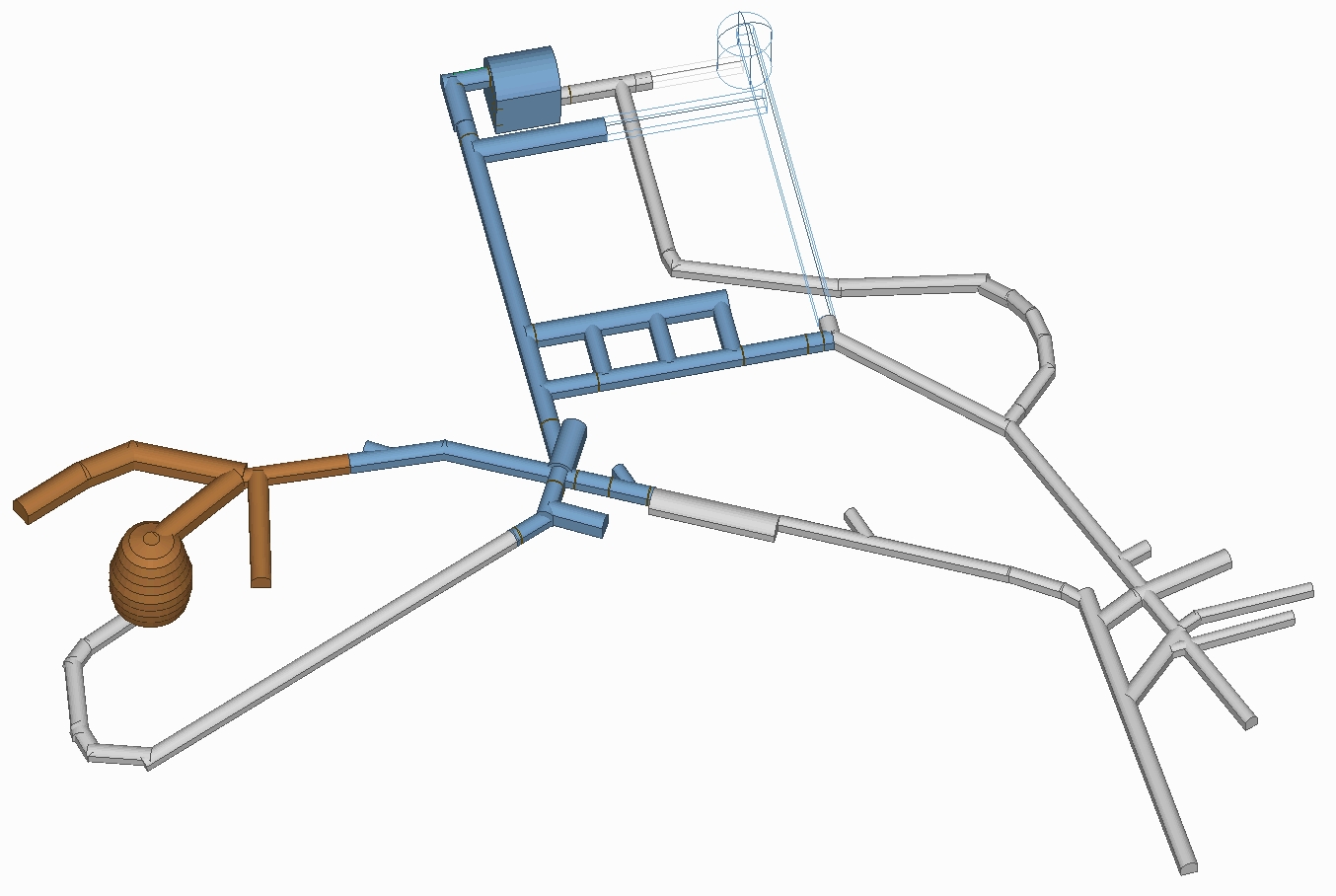Motivation and Topics
This workshop examines topics in low radioactivity materials and techniques, which is probably the most fundamental part of rare event physics detectors, such as for solar neutrinos, dark matter, double-beta decay, and long half-life phenomena.
This conference is intended to be wide in scope to include all aspects of the development of low background detectors and techniques. Topics include, but are not limited to:
-Survey of existing and planned low background facilities and resources.
-Low background detectors, shielding techniques and radiopurity requirements.
-New scintillators (optical properties, loading, and purification).
-Radon emanation and diffusion studies.
-Radon assay techniques.
-Radon free air, very low background noble gases (free of Rn, Ar and Kr).
-Radium assay techniques.
-Wash-off, leaching, surface contamination, screening and cleanliness studies.
-Water and scintillator purification studies.
-Low-level gamma-ray spectrometry.
-Neutron activation analysis techniques.
-ICPMS, atomic absorption and x-ray fluorescence spectroscopy.
-Studies of cosmogenic activation of materials.
-Software, simulations, electronics, vetoes and in-situ assay techniques.
-Simulation of background radiation and cosmic ray backgrounds and neutron fluxes.
-Adaptation of industrial processes and instrumentation.
The entire field of deep underground and rare event physics is becoming a dominant area of global research, with dark matter seemingly on the cusp of detection, the neutrino mass within the range of double beta decay experiments, and precision solar neutrino measurements becoming possible. More than ever, the next generation of rare event detectors are needing advanced materials and techniques in low radioactivity.
Meanwhile, around the world countries are investing in new and expanded underground facilities, and new experiments are being funded and constructed. In Canada, SNOLAB is finishing the outfitting of the newly excavated underground labs at the site of the Sudbury Neutrino Observatory. The first suite of experiments are under construction, with prototypes already collecting data, and most large experiments will be coming online in the period 2011-2013.
In the United States the NSF has selected Homestake for the Deep Underground Science and Engineering Laboratory (DUSEL), and the detailed design is in progress. Meanwhile the Sanford lab at Homestake is operational, the main Davis campus is currently being excavated, and the deep mine dewatering and shaft rehabilitation is progressing well. Several dark matter experiments have recently released results of high sensitivity search for dark matter pushing the limits down to 10-8 pb, including the CDMS experiment at the Soudan underground lab, Edelweiss at Modane, Xenon100 at Gran Sasso, and ZEPLIN-III at Boulby.
In Europe Gran Sasso has completed the public works upgrade, and is in a renewal phase for experiments, with various new experiments planned, in construction, and running. The Canfranc lab in Spain has been rehabilitated and expanded to include two new halls. The Modane lab in France (LSM) is expected to be expanded to twenty times the current volume during the Frejus second tunnel construction, with the EURECA dark matter experiment and the SuperNEMO double-beta decay experiment being prime candidates for running in the new lab.
In Asia the large facility at Kamioka has expanded again with new halls which will accommodate XMASS and CANDLES experiments, and the KamLAND detector is preparing for the double beta decay phase of the experiment. The new Chinese CJPL lab is under construction with a low background facility and the first phase of CDEX to be ready in 2012. Meanwhile Korea is expanding the Yangyang underground lab with a new hall for the TEXONO detector.
Recent experimental proof of neutrino mass and flavour oscillations continues to enrich and expand the field of neutrino astrophysics. The next steps in neutrino research seek to fix the absolute mass scale, measure the mixing parameters and CP-violation, determine if neutrinos are Majorana or Dirac particles, and to measure the flux of lower energy neutrinos from the primary reaction processes in the sun. The field also includes detectors for dark matter searches, and the detection of geo-neutrinos, reactor neutrinos and from possible beamed neutrino sources.
These facilities, detectors and experiments all require ultra-low detector backgrounds to reach the instrument sensitivities required. This demands novel techniques in the development, construction, operation and analysis of these experiments. Such issues include the low background radioactivity assay and purification of detector components and materials, and the development of high purity noble gases.
The goal of this workshop series is to bring together experts in this field for presentations and discussion covering broadly the issues of low radioactivity techniques. The intention is to foster and continue the collaboration and resource sharing required for the new generation of detectors to be developed at underground facilities. Common tasks and shared resources may include:
1) Coordinated use of HPGe gamma-ray spectrometers, other gamma-ray and neutron detectors by different groups/collaborations;
2) Databases of material purity;
3) Joint purchasing of radio-pure materials;
4) Monte Carlo simulation tools;
5) Radon emanation measurements;
6) Purification processes etc.
The last (and second) LRT workshop was in 2006 at Aussois, France hosted by Modane underground lab, and the first LRT workshop was hosted at Laurentian University in Sudbury in 2004. It is intended that the workshop be held approximately every 2-3 years. However, due to such things as construction at SNOLAB, the DUSEL process, L'Aquila earthquake, Canfranc development etc, the underground labs were not quite ready for another workshop. Anyway, we now feel overdue to hold this workshop again. The major underground labs around the world are now planning and constructing experiments, and are strongly in need of the LRT principles examined in this workshop series.


